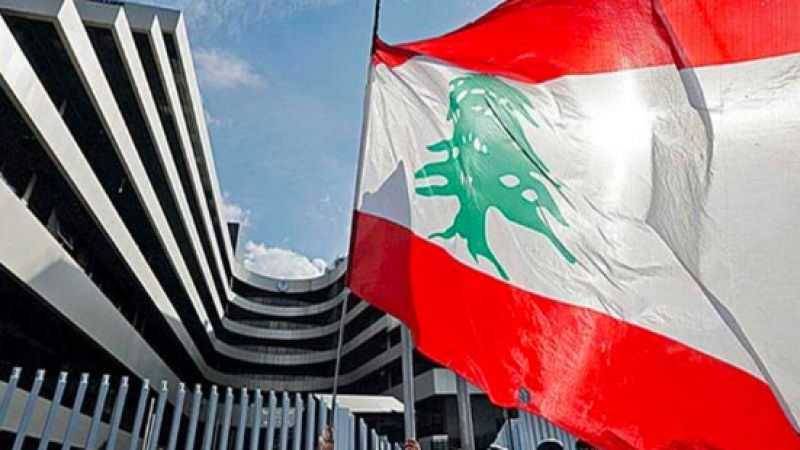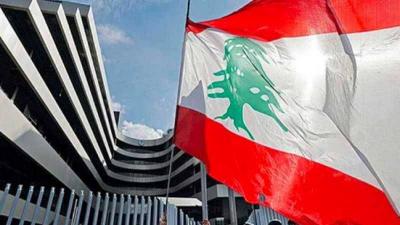Tomorrow, Tuesday, the International Monetary Fund (IMF) mission headed by Ernesto Ramirez Rigo will arrive in Lebanon to meet with several members of parliament, the Speaker of the House, the government, banking economic entities, and civil society associations. The mission's visit, which is its second after the last one in March, raises questions about its purpose given that the government and parliament have not undertaken any reforms or passed any reform laws as stipulated in the preliminary agreement signed in April 2022.
During the last visit, Rigo announced in a press conference that Lebanon is in an extremely critical phase due to a rapidly accelerating economic collapse, warning that delays in implementing reforms could plunge the country into an endless crisis. However, politicians have not moved an inch and have not awakened their resolve for the desired reforms, continuing their policy of wasting time and missing the opportunity to secure funding worth 3 or 4 billion dollars that would materially and morally benefit Lebanon, putting it on the track to exit the crisis if reforms are implemented and if the international community increases its support to Lebanon and loans it money.
**No Legislation Yet**
In this context, Deputy Prime Minister Saadeh Al-Shami answered "Sawt Al-Watan" when asked what he would say to the IMF delegation about the "achievements" of the government and parliament during the past period, saying: "We will tell them the truth that there have been no changes from March until today; no legislation has been approved in parliament, no new decisions have been issued, and what has only happened are changes in the Central Bank of Lebanon," referring to the end of the term of the Central Bank governor and the appointment of the first deputy to the governorship in an acting capacity.
**Response to the Bloomberg Framework**
Regarding the IMF's opinion on the "Bloomberg" platform that was approved in a Cabinet session, Al-Shami stated: "The Bloomberg platform is not a new proposal but was included in the government's plan without mentioning the word Bloomberg. It was indicated that the Sayrafa platform is not sustainable. The government’s plan states that we need a transparent platform through which supply and demand can be presented, and based on that, the dollar exchange rate in the market is determined."
Al-Shami considered "Bloomberg to be a tool, not an end, for trading operations, as it is a global platform similar to Refinitiv that is also used worldwide. The choice fell on Bloomberg because there are about 13 or more banks meeting the conditions ready to deal with it. Thus, this platform is not a new invention but a recommendation from the government and specifically from the memorandum of understanding."
**Weekly Pricing System**
Al-Shami mentioned that the "Bloomberg system" connects banks with each other, allowing for supply to be offered and demand to be placed, thereby determining the price daily, while the Central Bank is kept informed of developments. If the Central Bank senses that exchange rate movements are caused by speculation, it intervenes. Consequently, the dollar exchange rate will be liberated and unified according to supply and demand, through the central bank, with the exchange rate to be used for calculating fees and electricity bills potentially fixed for a week, for example, as price changes will not occur daily.
**Evaluation Visit**
Returning to the IMF visit, Saadeh confirmed that the fund would not issue any report after the delegation’s meetings with politicians and economists. Instead, it may release a statement regarding the mission's visit to Lebanon. Typically, countries seeking assistance from the IMF receive a full mission visit, as happened in March 2023, followed by a subsequent evaluation visit to follow up on what has been achieved, noting that the visit to Lebanon is brief and will last for 3 or 4 days.
**Laws Requiring Amendments**
Former Deputy Prime Minister Ghassan Hasbani confirmed to "Sawt Al-Watan" that "the IMF's visit is to follow up discussions with various parties regarding recovery approaches and to listen to and answer questions from stakeholders." The delegation will meet with several members of parliament, including those from the Finance and Budget Committee. Regarding the government's failure to accomplish any reforms or issue new legislation, he stated: "In last week’s meeting of the Finance and Budget Committee, several laws that need to be approved were discussed, which are still somewhat incomplete, and the majority of the required procedures have not yet begun."
**Need for Clear Figures**
"The current text of the proposal for the financial system rebalancing law, that is, addressing the financial gap, still requires amendments to meet the IMF's requirements. In both cases, there is a need for clear figures about the distribution of accounts at banks and their value to identify mechanisms for securing liquidity and capital to restructure and cover them. Therefore, all these matters, which are a requirement of the IMF, have not been completed by the government, while the IMF is interested in passing framework legislation without details. Some parliamentarians fear leaving matters open for governments to make decisions in them, resulting in a compromise for depositors in implementation."
**Deposits vs. Debts**
As for other topics that will be raised between the IMF delegation and Lebanese officials, Hasbani noted that "the IMF's priorities may not align with the needs of the Lebanese citizens at this stage. This is a point of discussion with the IMF to reconcile the state's responsibility towards depositors in addition to the banks, rather than prioritizing the state's coverage of external debts, such as Eurobonds, while neglecting its internal debts to depositors through the central bank, which the Alvarez and Marsal report has shown exceeds at least 40 billion dollars, disbursed by the central bank for the account of the state in foreign currencies."
With the high degree of lethargy affecting Lebanese officials, which the IMF has not encountered in its history of negotiations and dealings with several countries to which it has extended a helping hand, losing hope in the ruling system, the arrival of the IMF comes, as Hasbani noted, in the context of its duty, awaiting Lebanon to embark on the path of reforms before transitioning to a stage of support that will later require additional conditions.




